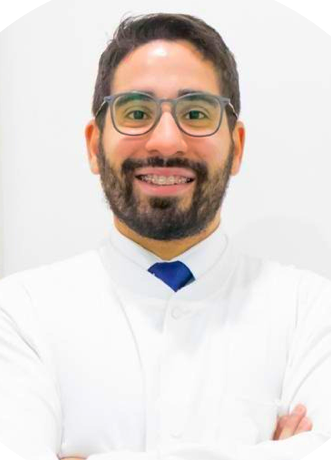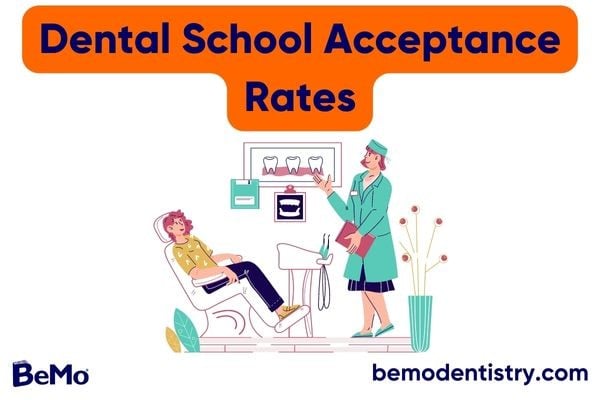Use our list of dental school acceptance rates to help you decide which schools to apply for with your current GPA and DAT scores or to determine what scores you need to work towards to get into your dream school! We’ve also included some helpful tips for getting into dental school once you’ve decided which schools are right for you.
Disclaimer: although we have made every effort to provide the most accurate information, admissions information changes frequently. Therefore, we encourage you to verify these details with the official university admissions office. You are responsible for your own results. BeMo does not endorse nor affiliate with any official universities, colleges, or test administrators and vice versa.
>>Want us to help you get accepted? Schedule a free initial consultation here <<
Listen to the blog!
Dental School Acceptance Rates

How to Use Dental School Admissions Statistics to Increase Your Chances of Acceptance
If you want to know how to become a dentist or can’t decide which schools you should apply to, researching dental school acceptance rates and admission data is the first step to preparing yourself.
Admission statistics for dental schools are useful when choosing which dental schools to apply to and planning your dental school applications, whether you are applying to the hardest or the easiest dental schools to get into. However, make sure to research the schools that interest you the most to determine their requirements. In some cases admissions statistics might be higher because of strict application requirements or preferences for in-state students.
We’ll look at a few other factors you should consider when deciding which dental schools to apply to.
#1: GPA and DAT Scores
Many dental schools have high average accepted GPAs and DAT scores. These are the primary indicators of your academic ability and often act as first-round cut-offs, so it is important to achieve as high as GPA and DAT score as possible. If you want to know whether you’re a competitive applicant to a particular school, check the average accepted DAT score or GPA and compare it to your own. Dental schools that set a minimum GPA are unlikely to consider your application even if you meet the minimum – you must strive to meet the average accepted scores of previous year’s matriculants to have a realistic chance of acceptance.
#2: Acceptance rate and number of applications
You should consider a dental school’s acceptance rate in conjunction with the number of applications it receives. Some dental schools will have lower acceptance rates because they are highly selective and/or only admit a small number of applicants. Other schools might be considered more competitive because they receive a high volume of applications and therefore only accept a small percentage. A lower acceptance rate doesn’t necessarily mean your chances are slim to none. If you meet or exceed the average GPA and DAT score, are an in-state applicant and have a stellar application, you have a better chance of getting into even a more competitive school.
While you are never guaranteed acceptance, you can tip the scales in your favor by considering these factors when researching different dental schools. You can create a list of schools where you are a competitive applicant based on your stats and the admission requirements. From there, research each of the schools to make sure they are the right fit for your educational goals, values, and needs. Even though you might be a competitive applicant at a certain school, it may not be your first choice. Take the time to curate a list of preferred dental schools, rather than wasting your time and money sending an application to every school you can find.
Bonus: In State vs. Out of State Acceptance Rates
Just like medical schools and other professional programs, most dental schools prefer applicants from their own state or province. This is to encourage dental school applicants who are more likely to stay and practice in that same state or province and contribute to improving dental health care for the state’s residents. Make sure to check how your preferred schools treat out-of-state applicants; equal to in-state applicants or with preferential treatment for in-state applicants. This may lower your chance of admission.
How can a dental school advisor or dental school admissions consulting help you?
FAQs
1. Which Dental School Has The Highest Acceptance Rate?
The University of Mississippi School of Dentistry has the highest acceptance rate of 19.3%.
2. What Are The Acceptance Rates At Dental Schools In Canada?
In general, Canadian dental schools have higher acceptance rates with most schools accepted over 10% of applicants. Be aware that there are different requirements for Canadian dental schools.
3. Is It Hard To Get Into Dental School?
Getting into dental school is very challenging, it will require a high GPA, a good DAT score, and an otherwise excellent application.
4. What GPA Do I Need For Dental School?
For the best chance of getting into dental school you should have a GPA of 3.5 or above, depending on the school you are applying to
5. What DAT Score Do I Need For Dental School?
Competitive applicants have a DAT score of 19 or above, depending on their target school.
6. What Are The Easiest Dental Schools To Get Into?
The easiest dental schools to get into in the US, based on acceptance rates, are the University of Mississippi, the University of Minnesota, East Carolina School of Dental Medicine, the University of Puerto Rico, the University of Utah and the University of Detroit Mercy.
7. Is Dentistry Less Competitive Than Medicine?
While dental school acceptance rates are higher than medical school acceptance rates, dentistry is still very competitive since there are comparatively fewer dental schools than medical schools and the admissions process is just as rigorous and selective.
8. How Can I Increase My Chances Of Getting Into Dental School?
To boost your chance of getting into dental school, you will need competitive DAT scores and GPA, a strong personal statement, excellent letters of evaluation and a great dental school interview.
To your success,
Your friends at BeMo

